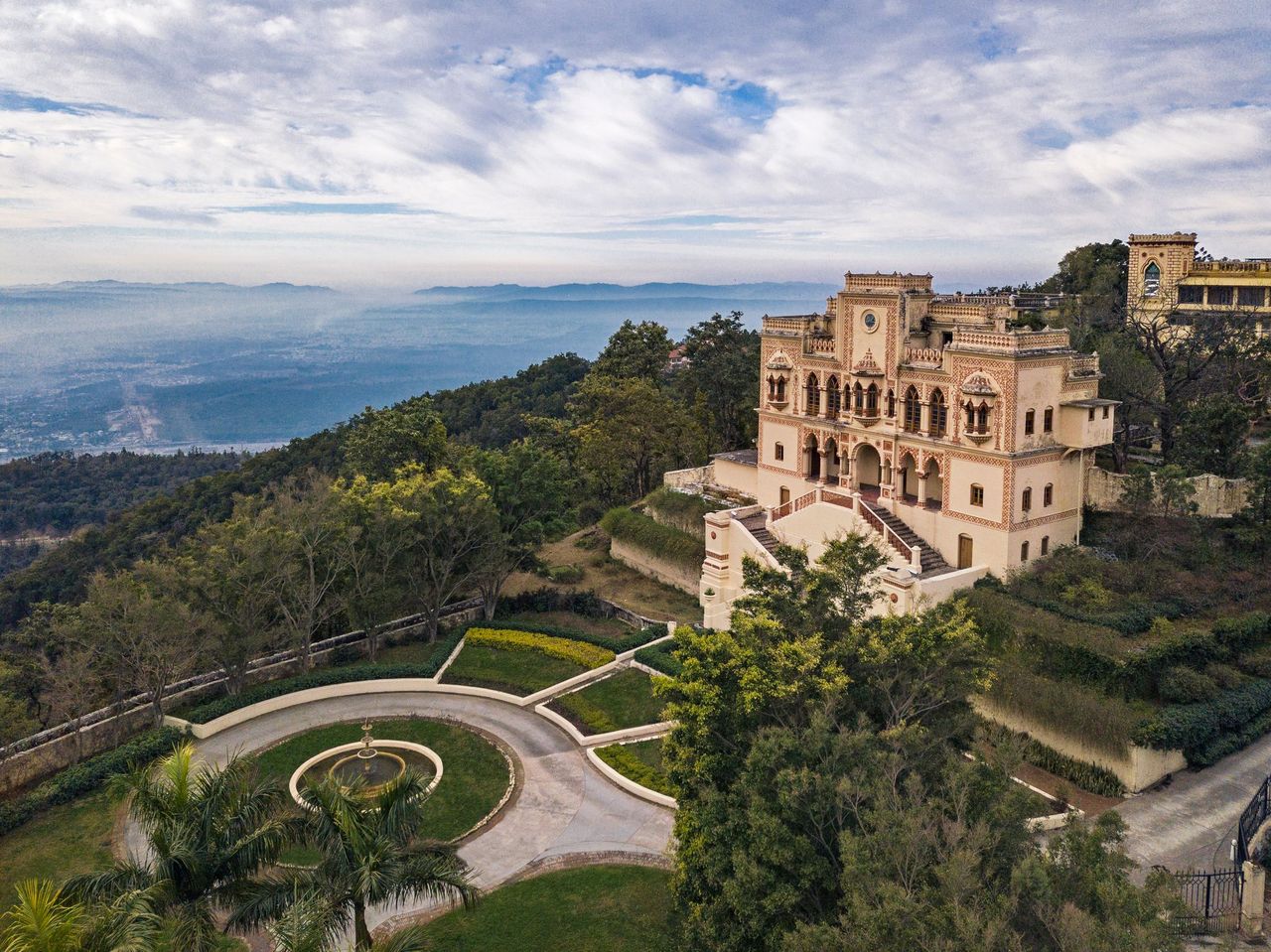Earth Day 2024 is all about “Planet vs. Plastics,” focusing on society’s growing commitment to ending plastics and reducing production of plastics by 60% by 2040.
Everyone is in on it—even hotels and travel planners.
Travelers can sleep more peacefully when on vacation knowing that the hotels or trips they’ve chosen are making strides towards reducing plastics for a healthier planet.
Hotel Belmar: Monteverde, Costa Rica

Reducing the plastic footprint is at the core of 26-room carbon-neutral Hotel Belmar’s commitment to the planet. The luxury boutique ecolodge has implemented eco-conscious procurement policies that prioritize eco-packaging and bulk purchases, significantly minimizing their use of plastic. Coupled with the hotel’s robust recycling and reuse programs, Hotel Belmar has made remarkable strides in minimizing plastic waste. The property joined Ecoheroes, an initiative dedicated to eradicating plastic waste from Costa Rica’s coastal areas. Each month, the hotel provides financial support, empowering local coastal families to collect plastic waste, giving it to a local enterprise that transforms it into a material used in cement blocks for construction. Nearly four decades since its opening, Hotel Belmar has become a world-class example of eco-tourism that has protected and regenerated the Monteverde cloud forest and its biodiversity while providing educational and professional opportunities to the local community. Among other noteworthy initiatives:
- The family-owned and operated property celebrates eight years without plastic bottled water and the hotel bar is virtually plastic free.
- An in-house seltzer machine produces plastic-free house made sodas flavored with amaranth and hibiscus.
- It uses an eco-farming approach called the Biointensive Agriculture (Agrarian) Method to maximize crop variety on small-scale plots through water conservation, natural pest controls, and organic soil enrichment. Its Finca Madre Tierra farm is the first agricultural project of its kind in Costa Rica to earn a carbon-neutral farm certification.
Ananda in the Himalayas: Rishikesh, India

Located in a Maharaja’s palace estate surrounded by a 100-acre forest, Ananda in the Himalayas is nurtured by the nature that surrounds it. The world-renowned wellness retreat has a zero waste-water policy. Recycled water from the sewage treatment plant is used for gardening and food waste is delivered to a nearby pig farm. The property installed a water bottling plant at the property with reusable glass bottles which has reduced 99% of the plastic waste created by single use plastic water bottles at the hotel. Among other noteworthy initiatives:
- Heat pumps help reduce 1200 kg of carbon dioxide emission per day.
- Ananda invites guests to make monetary contributions and then matches each contribution to train underprivileged girls in spa therapy.
- The hotel supports local farmers and uses 80% organic produce. Cooking classes focus on the nutritional aspects of less-processed plant-based ingredients to help guests adopt Ayurveda cooking practices.
Las Catalinas: Guanacaste, Costa Rica

Las Catalinas is a mostly car-free beach town nestled along the golden coast of Guanacaste in Costa Rica. Once a tropical dry forest, the town is actively restoring the lost ecosystem with its ongoing reforestation efforts. Today, techniques to prevent fires, plant native trees, and prohibit hunting have largely restored the tropical ecosystem. Central to the town’s conservation efforts is its creation of multi-use trails serving as vital corridors for wildlife and natural drainage systems. By preventing erosion and runoff, the trails help maintain the health and integrity of the forest ecosystem. Throughout Guanacaste and in town, Las Catalinas also promotes healthy drinking water through AyA, a program that helps fight against using plastic bottles for drinking water. Among other noteworthy initiatives:
- Since 2007, the town has planted 5,000+ trees of 13 native evergreen species.
- Las Catalinas prioritizes sustainable energy, efficient water usage and treatment, storm water control, and enhancement of wildlife habitats. It boasts a closed loop food system and calculated 120 kilograms of food waste per day this quarter.
- No building can be more than four stories, and most are stylistically in line with the materials, and techniques found in quintessential Central American towns.
Calabash Cove Resort and Spa: Saint Lucia
A popular all-inclusive, adults-only, plastic-free boutique hotel in Saint Lucia, Calabash Cove Resort and Spa is a Caribbean escape offering one of the only vegan menus on the island. With its ability to accommodate most dietary restrictions, the culinary team is constantly upgrading its vegan and vegetarian offerings with new items. The resort also now only serves sparking and drinking water in glass bottles—cutting plastics—and much of the restaurant’s food and beverage is sourced locally focusing on local farmers and fishermen. Among other noteworthy initiatives:
- All hot water is generated by solar energy and there are no oil or gas heaters.
- An on-site water treatment plant recycles irrigation water.
- The resort sources from local farmers whenever possible and sends used kitchen oil to a commercial laundry and Saint Lucia Distillers to be used as fuel.
Bettoja Hotels: Rome, Italy
Rome’s family owned Bettoja Hotels removed all plastic bottles from its hotels on Earth Day in 2019. Spanning five generations with 495 rooms among the three hotels, this sustainability initiative marks the first achievement in the brand’s commitment to the environment. But not its last. Bettoja Hotels has reduced plastic consumption by the elimination of all plastic bottles from the hotels’ restaurants and mini bars, a reduction of 40.000 to 60.000 plastic bottles per year. Instead, they use glass bottles that are returned to the bottle company. Among other noteworthy initiatives:
- The hotel has efficient insulation and uses thermal testing and double-glazing to ensure minimum waste.
- Bettoja Hotels plans to continue to reduce plastic consumption by using natural substitutes such as bamboo for straws and cutlery and eliminate single use plastic jam containers.
- The hotels reduce carbon emissions by utilizing local produce and reduce microplastics by using natural fibers for carpeting and linens.
Scenset: South Africa and Botswana

It’s not just hotels that are doing better this Earth Day. Travel companies are bringing travelers face to face with sustainable practices around the world. Scenset is a luxury travel-tech company based in San Francisco, California, that specializes in designing personalized itineraries featuring exclusive experiences, vetted guides, and luxury accommodations. Scenset trips are expertly tailored to clients’ preferences. Take a look at Scenset’s 10-Day Botswana Journey prepared by Christian Gibney, Senior Travel Curator.
- Scenset brings its eco-conscious ethos to Botswana and South Africa to help travelers contribute to the preservation of fragile ecosystems and support local communities. By promoting ecotourism in Botswana and South Africa, Scenset aims to raise awareness about the importance of conservation while providing travelers with unforgettable experiences that leave a positive impact on the environment and local economies.
- Partner lodges and tour operators in Botswana and South Africa adhere to strict eco-friendly standards, ensuring that every aspect of your journey aligns with sustainable travel principles. Travelers engage with local communities and learn about their conservation efforts firsthand through experienced local guides who are passionate about conservation and environmental education.
- By choosing eco-conscious operators and participating in conservation-focused experiences, travelers can directly contribute to wildlife conservation, habitat restoration, and community development efforts.







